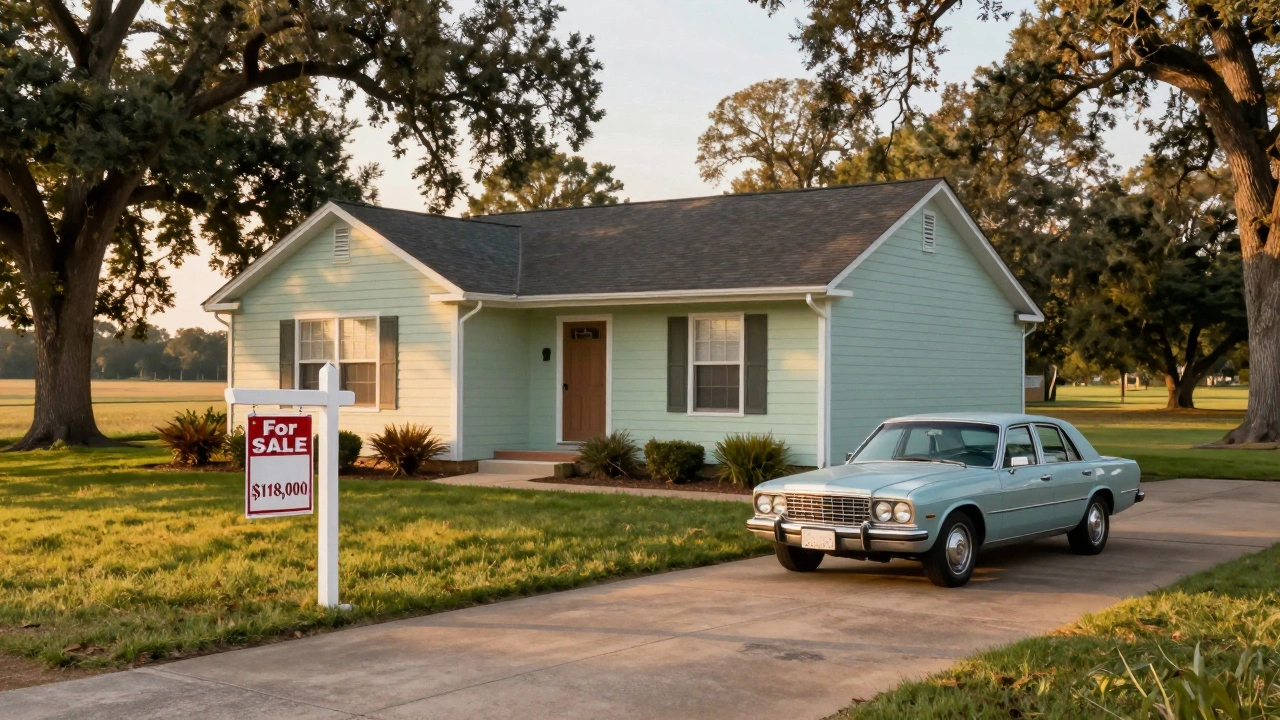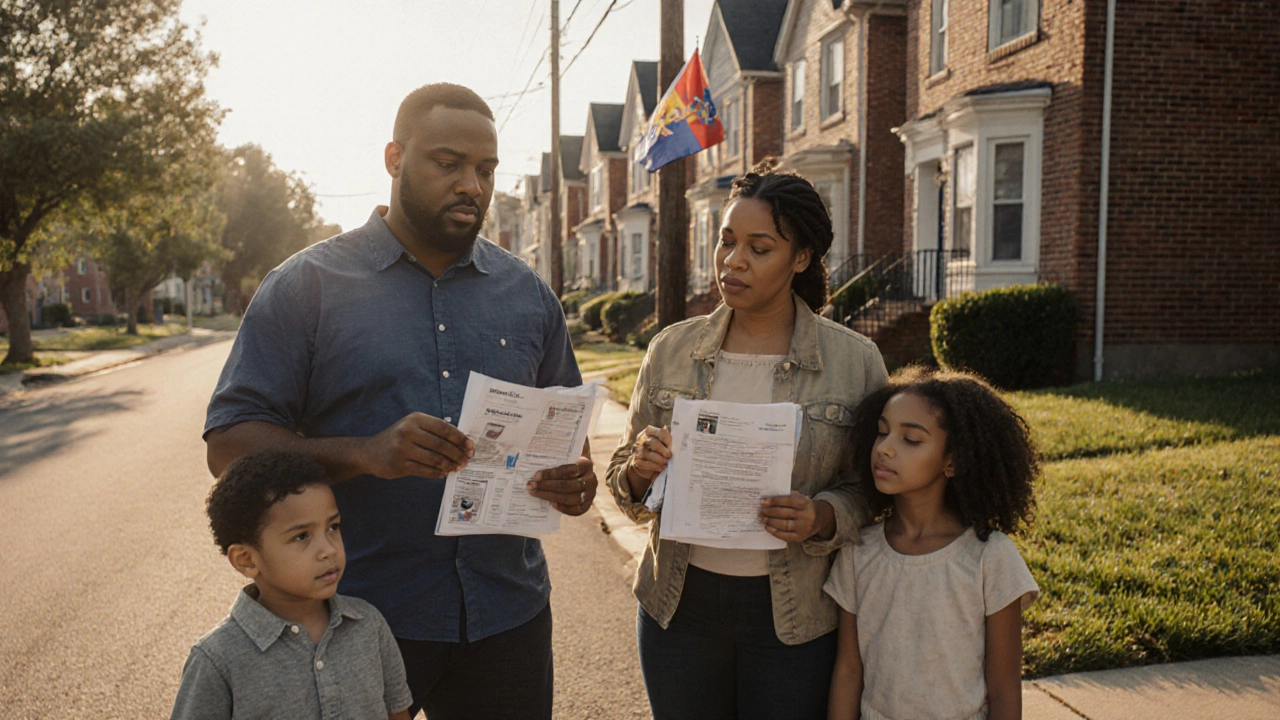If you’re hunting for a place that won’t break the bank, you’re not alone. Millions of people are looking for cheaper rent, smaller mortgages, or government help to keep a roof over their heads. The good news? There are solid steps you can take right now to narrow down the best options and avoid costly mistakes.
Start by targeting regions known for low cost of living. In the U.S., states like Mississippi, Arkansas, and West Virginia consistently rank among the cheapest to live in. Smaller towns in Virginia’s Southside or Southwest offer surprisingly affordable rents and a slower pace of life. Check local listings, talk to real estate agents, and use online filters that let you sort by price per square foot.
Don’t forget to factor in other expenses—groceries, utilities, and transportation can add up fast. A city with cheap rent but sky‑high electricity bills won’t save you much overall. Look for places where the total monthly cost is balanced, not just the headline rent figure.
Government assistance can make a big dent in your housing bill. The Section 8 voucher program, for example, covers a portion of rent based on local market rates and family size. To qualify, you’ll need to meet income limits—usually 30% of the area’s median income—plus residency requirements.
Each state runs its own housing assistance rules. In Virginia, eligibility hinges on income, household size, and whether you’re a resident of the county. The application process often involves paperwork, proof of income, and sometimes a waiting list, so start early.
First‑time homebuyers should also explore state‑specific programs that offer down‑payment help or lower interest rates. These can turn a seemingly impossible purchase into a realistic goal.
Now, how do you know if you qualify? A quick online calculator can estimate your eligibility for Section 8 or other local vouchers based on your earnings and family size. If the numbers look close, reach out to your local housing authority for a detailed review.
Beyond vouchers, many cities have rent‑controlled apartments or tax‑credit units that stay below market prices. Keep an eye on municipal websites and community boards for announcements.
Finally, be practical: set a budget that includes rent, utilities, and a safety net for emergencies. Stick to it when you’re hunting listings, and avoid the temptation to stretch beyond what you can comfortably afford.
Affordable housing isn’t a myth—it’s a matter of knowing where to look, understanding the rules, and acting quickly. Use the tips above, stay organized, and you’ll find a place that fits both your needs and your wallet.

Section 8 in Virginia helps low-income families pay rent by covering part of their housing costs. You choose where to live, and the government pays the difference between 30% of your income and local rent limits. Waitlists are long, but landlords can't legally refuse vouchers anymore.

Mississippi is the #1 cheapest state to live in 2026, with the lowest housing, utility, tax, and grocery costs. Discover why it beats Arkansas, Oklahoma, and Kentucky in affordability.

Step‑by‑step guide to securing an emergency housing voucher in Virginia, covering eligibility, agencies, application process, pitfalls and FAQs.

Hunting the cheapest part of Virginia? Here’s where your dollar stretches most, what it really costs to live there, and how to pick the right town without regrets.

Struggling with high rent or home prices? This article sheds light on which state really makes it simplest to find decent, affordable housing right now. Unpack actual costs, what 'affordable' means depending on where you live and work, and tips for getting approved for a low-cost home or apartment. It also looks at which states have the best programs and laws for renters and first-time buyers. Cut through the confusion so you know where to start if you need a break on your next move.

Hunting for a place that's both friendly on your wallet and great to call home? This guide breaks down cities and towns around the world that balance quality of life with low costs. You'll find real examples, straightforward advice, and a few smart tips on things like renting, getting around, and meeting people. No fluffy travel-day dreams—just real info for anyone considering a move. Perfect for students, freelancers, retirees, and budget-focused families.

Looking to save on living costs? Discover the U.S. state with the lowest cost of living. We explore where you get the most bang for your buck and what makes these places so budget-friendly. It's not all about rent prices; we'll also dive into other cost factors such as groceries, utilities, and transportation. Get ready to find out where you can stretch your dollars the farthest.

Section 8 housing vouchers play a crucial role in providing affordable housing solutions to those in need. This article delves into who benefits the most from Section 8 program, unveiling the demographics and communities it serves best. Discover interesting facts and gain practical tips on how this program operates and impacts lives. Understand the real people and stories behind the numbers, promoting a deeper awareness of this essential social service.

Looking for the cheapest state to rent an apartment in? This article uncovers where you can find affordable housing in the U.S., diving into specific cities with low rent prices and factors driving these costs. We'll explore the economic and social perks of these locales. You’ll also get practical tips on finding budget-friendly living spaces in these areas. Finally, the article helps you weigh pros and cons to make an informed decision.

Navigating the qualifications for affordable housing in the United States can be a complex task. The process primarily looks at factors such as income level, family size, and housing costs relative to income. Understanding eligibility is crucial as many deserving families might miss out on benefits due to a lack of information. This article breaks down the criteria and offers tips to help you determine if you qualify.

Navigating the housing market can be daunting, especially when balancing it with an hourly wage of $25. This article examines if $25 an hour is sufficient for living expenses and securing affordable housing. We discuss the different aspects of housing affordability, including geographic location, lifestyle choices, and budgeting strategies. Readers can expect practical tips to make the most of their income while exploring viable housing options.

The Section 8 program, an essential part of affordable housing initiatives in the U.S., provides rental assistance to eligible low-income families. This article explores the factors that influence the maximum rent subsidies available through Section 8 vouchers. By understanding how local market rates and adjustments based on family size come into play, renters can better navigate their housing options. Learn about how utility allowances are factored into calculations and how to access the necessary resources for tenants and landlords.